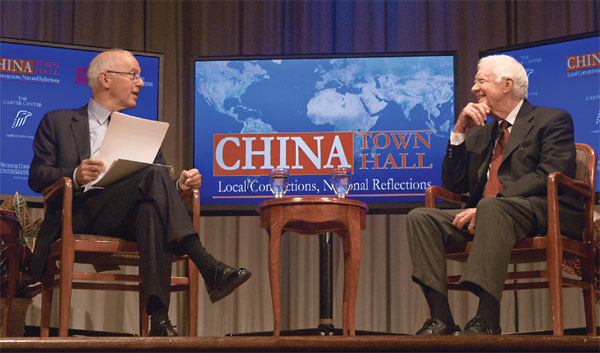Carter: Sino-US ties most crucial
Updated: 2014-10-17 13:10
By Amy He in New York(China Daily USA)
|
||||||||
|
Jimmy Carter (right), former US president, discusses US-China relations with Stephen Orlins, president of the National Committee on US-China Relations during a China Town Hall event at the Carter Center in Atlanta on Thursday evening. Provided by Carter Center |
Former president says the nations should recognize mutual benefits
US President Jimmy Carter called the US-China relationship the "most important bilateral relationship in the world" and said that the people of the two countries can learn to trust each other if the leaders of both continue to talk about how the two nations have benefited from the relationship.
"When I was in China last time for 10 days, we had a poll result, I think by Pew," the 39th President of the United States said on Oct 16. "Only 10 percent of the Chinese believe that the United States can be fully trusted - 10 percent. And only 25 percent of Americans now feel that China can be fully trusted. That creates a problem that has to be resolved, I say, by the action and the words by our two leaders."
He said that the US-China relationship has "not only brought about 35 years of peace and stability in Asia, but it has also improved trade and commerce and prosperity of Chinese people and Americans".
Carter made the remarks in a discussion on US-China relations hosted by the National Committee on US-China Relations. The event, the 2014 CHINA Town Hall: Local Connections, National Reflections, is held annually and delivered via a live webcast across 74 cities in the US and Hong Kong.
Former Secretary of State Madeleine Albright was the town hall speaker last year. Past guests for the event have included former US Ambassador to China Gary Locke and former national security adviser Zbigniew Brzezinski.
Asked about the images that American and Chinese media paint about each other's nations, Carter said that the negative perceptions "have to be addressed foremost by the leaders themselves" when Chinese president Xi Jinping and US President Barack Obama are slated to meet later in the fall.
The two leaders had a productive and harmonious meeting in Sunnylands, California last summer, and "good results have come from that", Carter said.
Obama said in an interview with American columnist Thomas Friedman in August that China needs to be a "stakeholder in this system and not a free rider", which drew the ire of Chinese media, something that Carter said Obama must address at his next meeting in China.
"I would like for him to explain to the Chinese people what he meant by 'free riders', because that's a burning issue," Carter said. Obama should explain that it's not a condemnation of a Chinese people and "still praise the economic advances that they've made", he added, and that in the future the countries need to be equal partners.
"That would set an image of harmony between the countries," said Carter.
This year marks the 35th anniversary of the establishment of relations between the US and China, and Carter presided over the signing of the historic accord in 1979 with Deng Xiaoping, who was then deputy premier. Carter took office in 1977.
Stephen Orlins, president of the National Committee on USChina Relations and moderator of the discussion, said that as a young lawyer in the State Department during Carter's presidency, he was able to witness how monumental it was for the two country's leaders to sign the accord at the time.
"Opposition to the normalization of relations was intense on the US side, from some in the Congress, from lobbyists, from members of the public," he said. "There was also great debate at the highest levels in China. President Carter and Deng Xiaoping acted despite the resistance in each country, and the result has been 35 years of peace, stability, and economic growth on both sides of the Pacific."
amyhe@chinadailyusa.com
(China Daily USA 10/17/2014 page1)
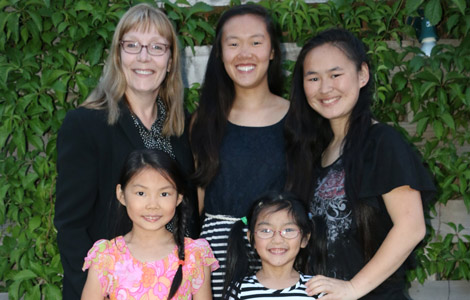
 Gift of love and joy
Gift of love and joy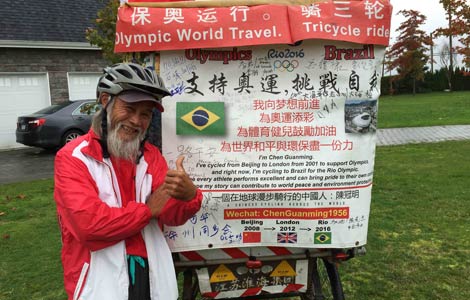
 Riding the Olympic Rickshaw in Vancouver
Riding the Olympic Rickshaw in Vancouver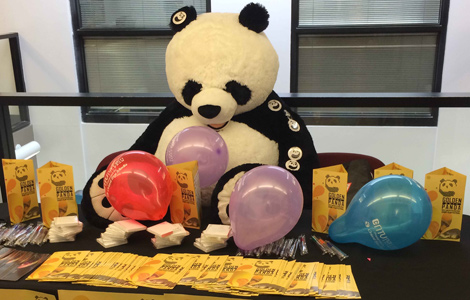
 Film festival connects Chinese, American filmmakers
Film festival connects Chinese, American filmmakers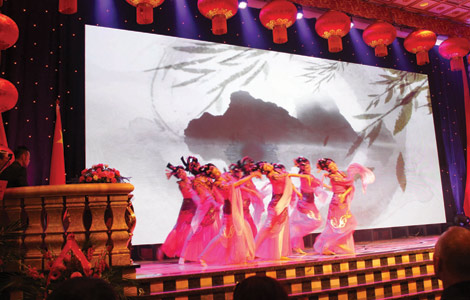
 Across Canada Oct 17
Across Canada Oct 17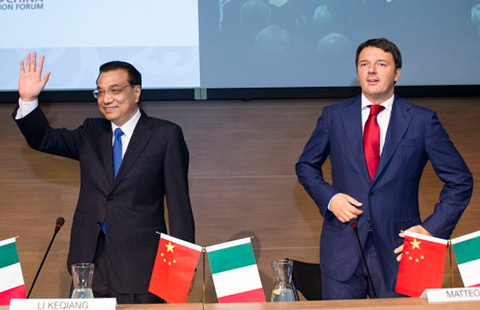
 Premier Li attends the Fifth Italy-China Innovation Forum
Premier Li attends the Fifth Italy-China Innovation Forum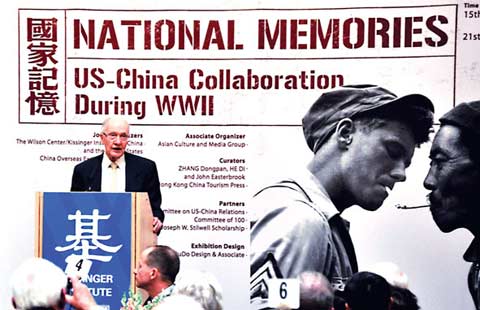
 WWII photos evoke lasting bond
WWII photos evoke lasting bond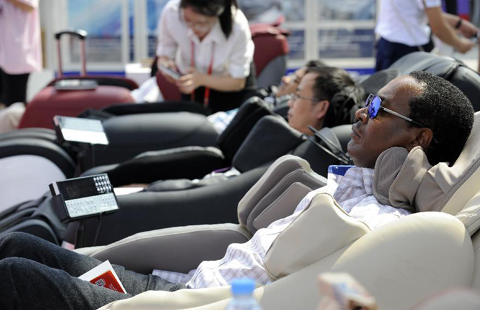
 116th China Import and Export Fair kicks off in Guangzhou
116th China Import and Export Fair kicks off in Guangzhou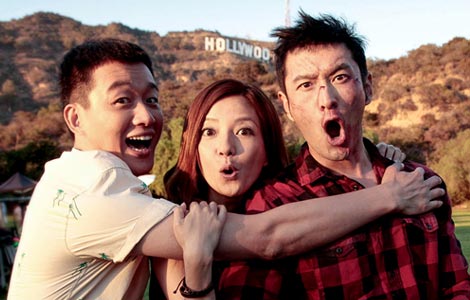
 Movie 'Hollywood Adventure' begins filming in US
Movie 'Hollywood Adventure' begins filming in US
Most Viewed
Editor's Picks

|

|

|

|

|

|
Today's Top News
China-US summit will echo Sunnylands meeting
Alibaba keeps analysts bullish month after IPO
Ambassador optimistic on China-Canada relations
The tenth Asia-Europe meeting opens in Milan
Patient with 'Ebola-like symptoms' admitted to Conn. hospital
Premier Li sows the seeds for farming
Short-film festival connects Chinese, North American filmmakers
US Ebola patient allowed aboard flight
US Weekly

|

|
